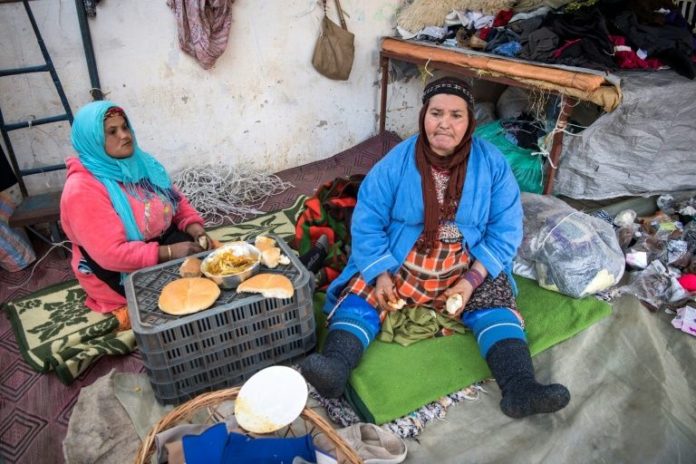By AFP
After years of back-breaking toil, Fatima el Hanani now fears being reduced to begging in the street because of Morocco’s closure of its border with a Spanish enclave to thousands of “mule women”.
The impact has been felt on both sides of the frontier, with the Moroccan porters who lugged duty-free Spanish goods left out of work and shops closing as livelihoods dry up for traders.
“They want to turn us into beggars,” says Hanani, who had spent all her working life transporting heavy loads from Ceuta to the town of Fnideq in the North African kingdom.
Like thousands of other Moroccan women — and also men — she would cross every day into the Spanish enclave and come back laden with merchandise for traders.
Goods brought on foot through the crossing on a hill looking over the Mediterranean are not subjected to import duties, unlike those brought by vehicles.
But four months ago, Morocco suddenly stopped porters from crossing, in a move aimed at curbing the entry of contraband.
“Business was good before,” says Hanani, who is in her 50s, but now “there is no more work”.
Nicknamed “mule women”, the Moroccan porters would often be seen bent double, overburdened by goods approaching or exceeding their own bodyweight.
– ‘I don’t make money’ –
Rights groups repeatedly denounced the work as “humiliating”, saying it was tantamount to trafficking tolerated by the authorities.
At least four women porters were trampled to death in 2017, in stampedes at the border post — the only land frontier between the EU and Africa.
But it was vital work for Hanani, who says she has raised five children on her own thanks to the long-tolerated practice.
Now she sells trinkets in a souk in Fnideq.
“I don’t make any money anymore,” Hanani laments, her wares spread out on the ground.
The delivery of bundles of clothes, food products and household goods created business that benefited the economy on both sides of the border.
















